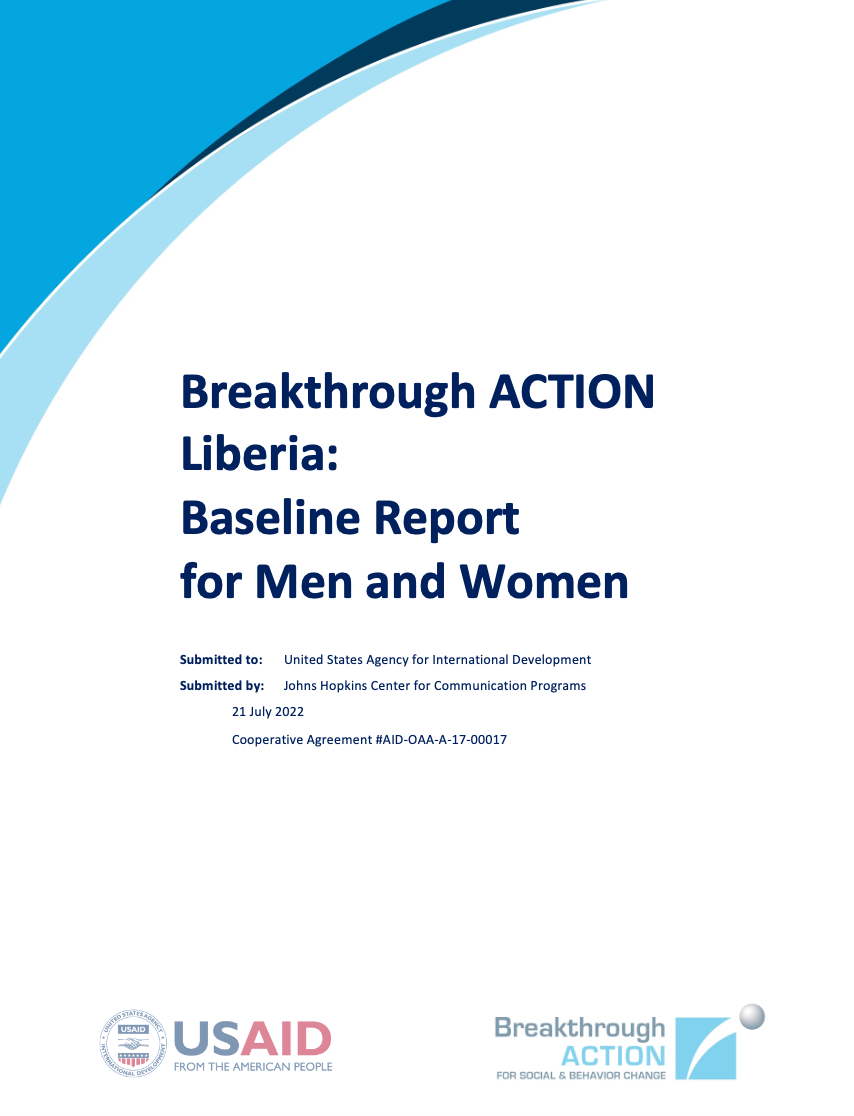Breakthrough ACTION Liberia: Baseline Report for Women and Men
Breakthrough ACTION is a global project funded by the United States Agency for International Development (USAID) to lead social and behavior change (SBC) programs around the world. The project ignites collective action and encourages people to adopt healthier behaviors. This work harnesses the demonstrated power of communication and integrates innovative approaches from marketing science, behavioral economics, and human-centered design.
In Liberia, Breakthrough ACTION supports the increased adoption of health behaviors among individuals, families, and communities. The Breakthrough ACTION Liberia project uses an integrated health approach to promote a full suite of healthy behaviors across the areas of malaria; reproductive, maternal, newborn, child, and adolescent health (RMNCAH); family planning (FP); nutrition; zoonotic diseases; and water, sanitation, and hygiene (WASH)—all areas that have been identified as priority areas by the Liberian Ministry of Health and USAID.
To assess relevant baseline indicators and inform the SBC strategy across several health areas and audiences, Breakthrough ACTION Liberia conducted a household survey among men and women of reproductive age in three counties between September and October 2021. The baseline survey was cross-sectional and had the following objectives:
- Identify key determinants of health behaviors in the areas of maternal health, maternal and child nutrition, malaria, COVID-19
- Set benchmarks for impact assessment of the integrated SBC Breakthrough ACTION Liberia program
- Assess the roles of gender-equitable norms, social norms, couple communication, and decision-making in the adoption of health behaviors
- Inform an SBC strategy across several health areas and audiences
- Establish baseline measures to assess the effects of project activities
This report focuses on partnered women and men of reproductive age. We baseline the levels of priority health behaviors along with intermediate outcomes that offer the potential to affect priority behaviors in one or more health areas, including malaria, RMNCAH, WASH, zoonotic diseases, nutrition, COVID-19, and Global Health Security Agenda (GHSA). The intermediate outcomes include couple communication, decision-making, knowledge, attitudes, perceived norms around priority behaviors, and patient-provider interaction experiences. In addition, the report captures recall of Breakthrough ACTION Liberia program-related messages and describes how various demographic, psychosocial, cultural, and relational factors are associated with priority health behaviors.
Source: Johns Hopkins Center for Communication Programs
Date of Publication: January 17, 2023

